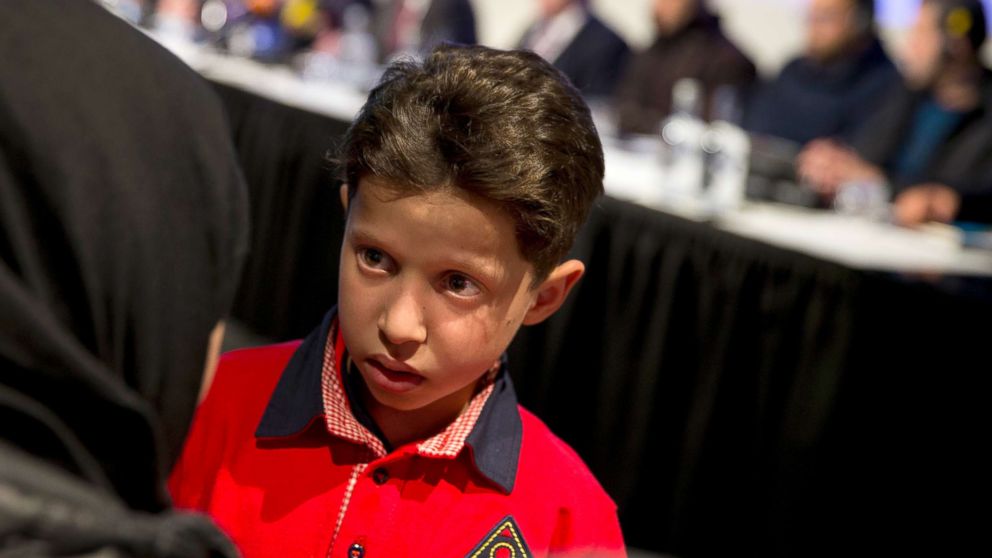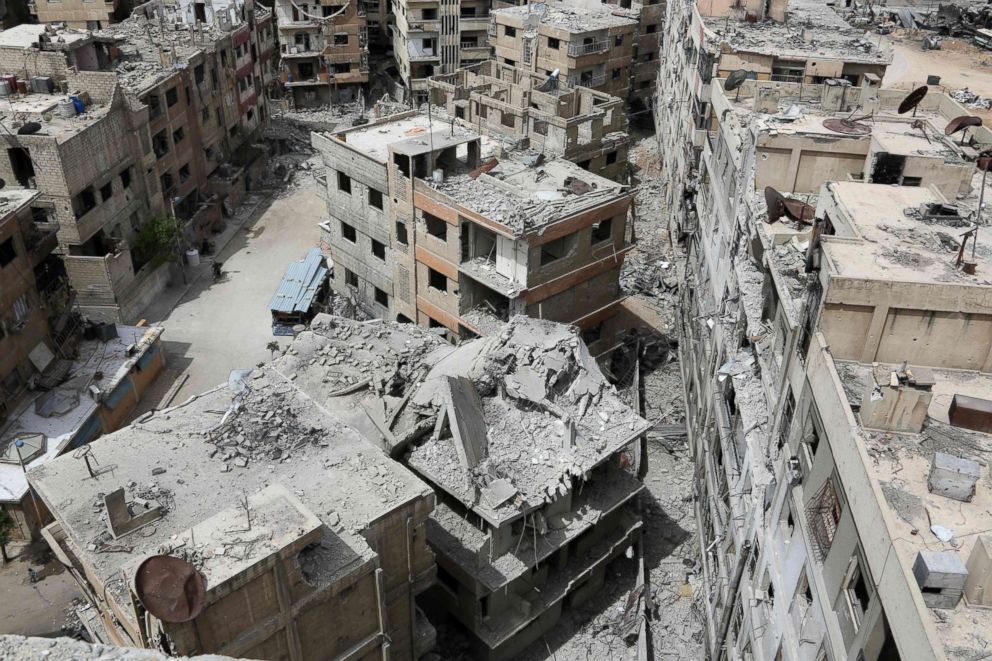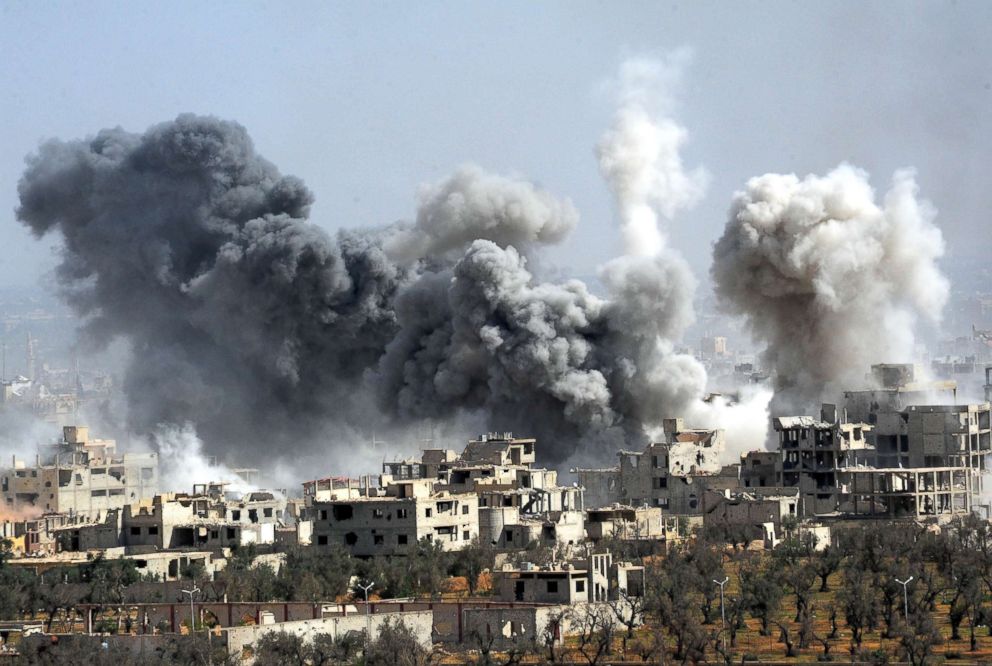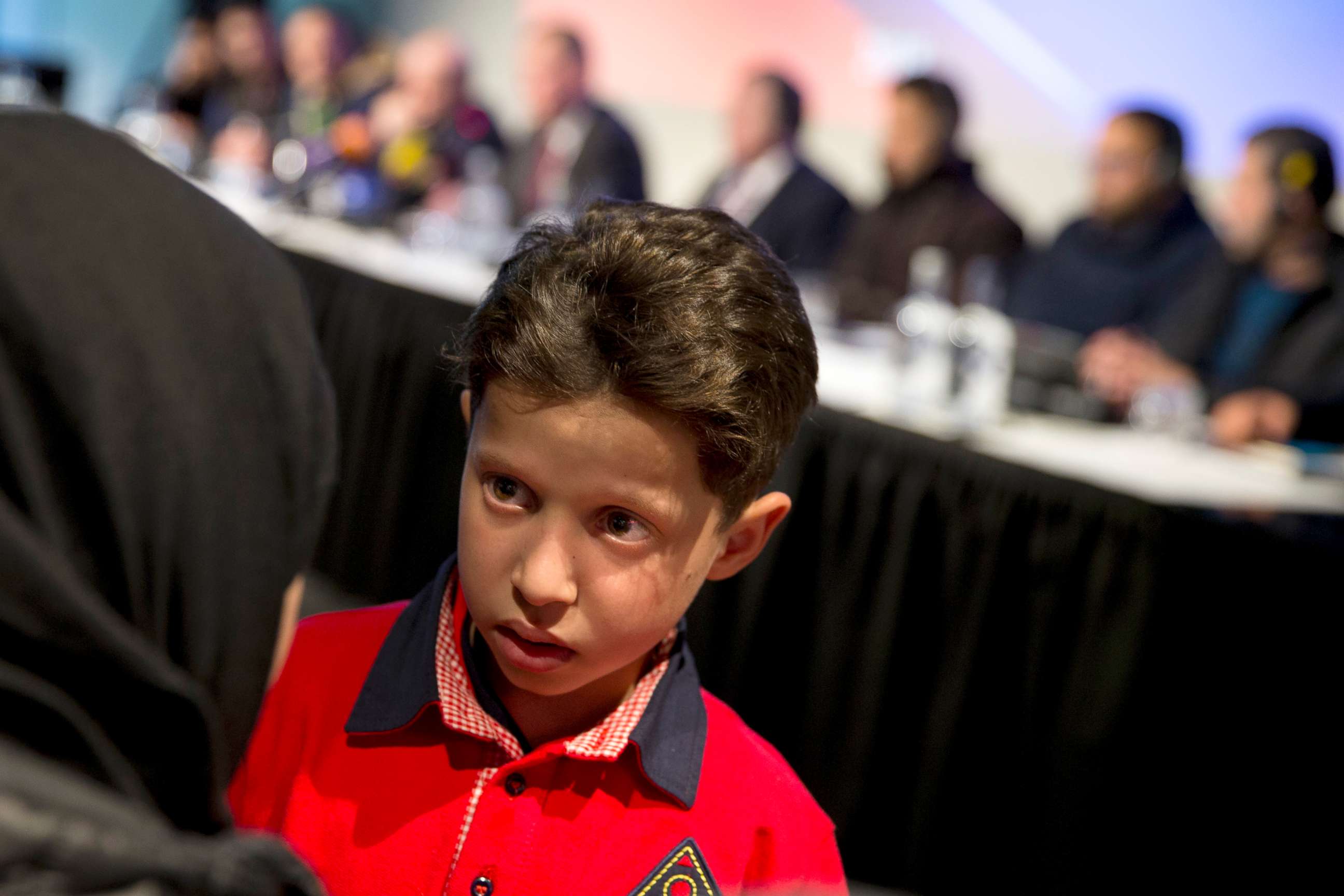Russia accused of 'obscene masquerade' after flying in alleged witnesses to Syrian chemical attack
Russia flew in an 11-year-old Syrian to back its claims the attack was staged.

Moscow -- Russia has been accused by Britain and France of organizing an “obscene masquerade" after it flew in several Syrians to the headquarters of the Organization for the Prohibition of Chemical Weapons (OPCW), who Russian officials claimed could prove the chemical attack in the Syrian town of Douma this month was fake.
Russian diplomats presented the alleged witnesses at a news briefing at the OPCW’s headquarters at the Hague in Holland Thursday, ignoring objections from the organization itself. With the presentation, Moscow sought to support its claims that the Syrian government was not behind the chemical attack, which later prompted retaliatory missile strikes from the United States and its allies two weeks ago.
Russia and Syria have insisted that the attack on April 7, which doctors and activists have said killed at least 40 people, was in fact simulated by rebels and humanitarian groups opposed to Syrian President Bashar al-Assad, as a pretext for U.S. and European military action.

Russia held the presentation despite a request from the OPCW to wait until it had completed its own investigation of the attack. France and Britain, which joined the U.S. missile strikes two weeks ago, refused to attend the presentation, denouncing it as a gruesome stunt.
"This obscene masquerade does not come as a surprise from the Syrian government, which has massacred and gassed its own people for the last seven years," France's ambassador to the Netherlands, Philippe Lalliot told Reuters.
The U.S. and France have said they have evidence showing chlorine and likely a nerve agent was deployed by Syrian government forces in the attack. French officials have said their findings were based on samples taken from bodies in Douma.
Since the first reports appeared of people suffering from apparent chemical poisoning in Douma, Russia has pressed two narratives, backing Syrian government claims that no attack took place, while also alleding to have found chemical weapons produced by rebels and even Britain in the area near Douma.
Russia’s military has fixated on one video released by the White Helmets, a well-known group that rescues people from buildings hit by airstrikes in rebel areas. The video, that was broadcast by media around the world, shows panicked people in a hospital apparently after the attack being doused with water in an attempt to wash off chemicals.

Russia’s defense ministry has claimed though that the video was set up by rebel activists, alleging the activists had filmed themselves simply hosing people with water and causing panic by shouting about chemicals.
The alleged witnesses brought out by Russia at the OPCW Thursday said they had been present at the hospital shown in the White Helmets video. Among them was an 11-year-old boy, who was featured prominently in the video.
The boy was also interviewed by Russian state television last week, which identified him as Hassan Diab, along with a man purportedly his father, who in the reports echo the Russian military's version of events. Russian media has been heavily promoting the interview and Russia’s ambassador to the United Nations, Vasily Nebenzya referenced it in a speech.
But doubts have emerged around whether the boy is speaking freely. The national security-focused news site, The Intercept has reported the interview appeared to have been filmed inside a Syrian military facility in Damascus, where Russian military advisers were present.
At the presentation Thursday, the boy was allowed to speak for less than a minute, following a 40-minute preamble from Russia and Syria’s OPCW representatives lambasting the U.S. and rebels. First, the man identified as his father spoke as he described how his children had been led through a tunnel to the hospital and then sprayed with cold water. He said the children cried in the video because the water was cold.

He then handed the microphone to his son, who slowly repeated the same story almost word for word.
“At the hospital, they started to pour water onto us. Cold water,” the boy said, before saying thank you and handing the microphone back.
None of the identities or testimonies of the witnesses presented by Russia could be independently verified and they contradicted numerous other accounts from people in Douma to international media, which described seeing dozens of people sickened with symptoms resembling those caused by chlorine and a nerve agent.
Russia has also not addressed the numerous other videos and photos that show piles of dead or dying people, many foaming at the mouth. This week, Russian state media was also caught using old photos from a 2016 documentary as proof that the Douma chemical attack had been staged by rebels. Open source investigations by the independent research group Bellingcat have also disputed the Russian versions.
Britain’s OPCW envoy, Peter Wilson in a statement said that any witnesses should be interviewed by OPCW investigators and condemned the Russian presentation.
“The OPCW is not a theatre,” Wilson said. "Russia's decision to misuse it is yet another Russian attempt to undermine the OPCW's work."
OPCW inspectors are currently in Syria to investigate the attack, and have visited Douma twice, following days of delay after the team was fired on there. Britain has accused Russia and Syria of using the delay to try to cover up traces of the attack and the U.S. has warned it's concerned the site may be contaminated due to tampering.
Russia has previously refused to accept independent investigations that have found the Syrian government to be behind other chemical attacks. After a United Nations investigation found government warplanes had carried out an attack that killed 80 people in the town of Khan Sheikhoun last April, Russia denounced the investigators as biased.
The clash reflects how the OPCW is struggling to retain its influence as a neutral arbiter, amid Russian rejections of its work. Last week, Russia suggested it will not accept the OPCW's conclusions from its investigation into the poisoning of a former Russian double-agent with a nerve agent in Salisbury in Britain -- an incident that the United Kingdom and the U.S. have said Russia bears responsibility for.




